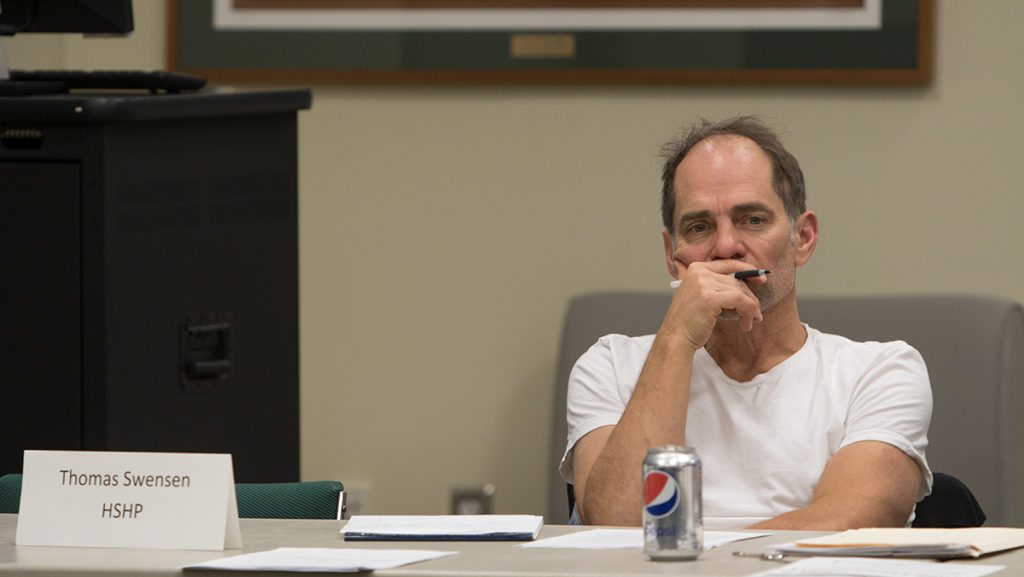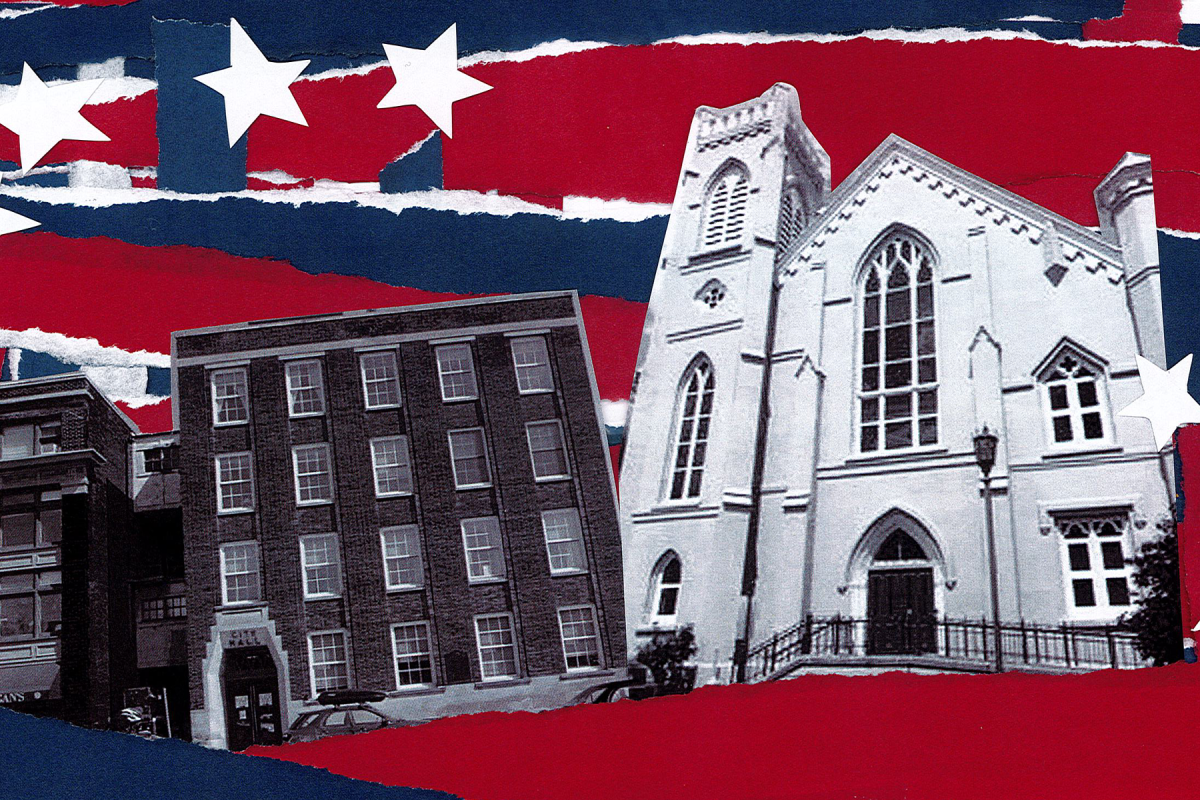Though the Faculty Council created a committee Nov. 2 charged with optimizing the Integrative Core Curriculum, no significant progress has been made as the semester draws to a close, members of the council said during the Dec. 6 meeting.
Rachel Kaufman, lecturer in the Department of Writing, also passed out a letter to the council outlining the issues the contingent faculty at the college is trying to address in bargaining a contract with the administration about fair wages. The letter, titled “Standing up for Equal Pay for Equal Work,” was signed by 16 faculty members. Written in a question-and-answer format, it addressed issues of equal pay, how much money contingent faculty can earn, how the contract would affect the college’s budget and how many contingent faculty make up the teaching community at the college.
During its Oct. 4 meeting, the council moved to form an ICC Advisory Committee, charged with looking into complaints students have expressed with the requirements of the ICC. However, as of the second-to-last week of the fall semester, the committee has not announced any new findings, nor have any policy changes been proposed.
Leann Kanda, associate professor in the Department of Biology, said she wants students to gain ICC credit for courses that received the designation after they took them.
“These students, they’ve taken a course, or multiple courses, that fulfill a requirement, but they did not fulfill that requirement at the time that they took it,” Kanda explained. “There is currently no consideration given to a petition of that retroactive credit.”
Representatives from the Student Governance Council addressed the council about promoting student involvement in the reformation process of the ICC. Emily Honen, SGC School of Humanities and Sciences senator, said the SGC was working on a bill to create a student council to discuss the ICC or be allowed to sit in on meetings with the ICC Advisory Committee.
Honen said students are frustrated with the lack of resources available to them for navigating their ICC requirements.
“People have been telling students, ‘Well the system is new,’ but they’ve been telling us that for three years now,” Honen said. “And now we have this very urgent problem of students not being able to graduate because no one has been helping them.”
Devan Rosen, associate professor and emerging media program director in the Department of Media Arts, Sciences and Studies, said that while counseling his advisees to find classes to fit their ICC curriculum, he has seen many problems with the system.
“I could speak firsthand for my 60-plus advisees that have been trying to find a class that they can take for the entirety of their time here,” Rosen said. “They’re now graduating and have never gotten one, even though they all submit overrides into what has become a flooded request system. They feel they’ve been systemically underserved by the ICC.”
Honen said many students do not understand the fine details of how their classes, here and abroad, can fit into ICC requirements.
“I worked at the provost’s office today and was going through some of the requests that people made to have their study-abroad classes count for ICC credit,” Honen said. “The process is very long, and it can go through several stages of back-and-forth. Many students aren’t aware of the process as it is.”
Rosen said faculty need to advocate more actively for their students for reform of the ICC.
“I could tell you that some of my colleagues don’t even understand the learning outcomes of the ICC themselves, and we’re faculty,” Rosen said. “I think to expect students to understand those nuances of courses and how they change is, in the short term, unreasonable. We created this curriculum. We have underserved the students systemically, and this is on us to correct that action.”
Linda Petrosino, provost and vice president for educational affairs, thanked the council and said she would work with the Staff Council Executive Committee to respond to their feedback.
The council also discussed drafting a formal letter to the college’s next president, who is expected to be confirmed at the end of the Spring 2017 semester. Kanda said, and other faculty members agreed, that the faculty should express interest in engaging directly with the upper administration — establishing a direct channel of communication early on to raise standards of transparency. However, the content of the letter was not finalized.
“We need to increase connection and communication,” Kanda said. “I think this is an opportunity to express common goals between the upper administration and the faculty.”
CORRECTION: The article previously stated that the ICC advisory committee was charged to assess the ICC and was established at the Oct. 4 meeting. It was corrected to state that the committee is charged with optimizing the ICC and was established at the Nov. 2 meeting.








